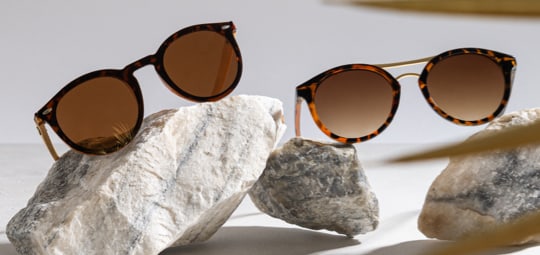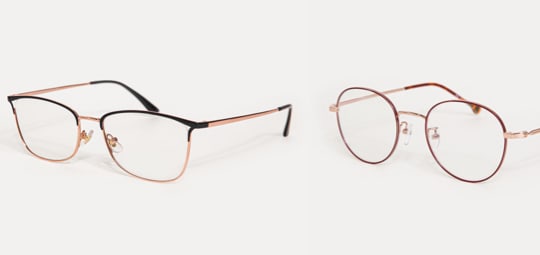In the quest for the perfect pair of sunglasses, a question may surface: Are polarized sunglasses truly better for your eyes? When spending time outdoors, finding the right eyewear is key.
Polarized sunglasses have emerged as a popular choice, enhancing outdoor experiences by reducing glare and improving visual comfort.
But do they live up to the hype, and how do they compare to other types of sunglasses in terms of UV protection and overall eye health benefits?
Polarized lenses will not protect your eyes from UV damage any more than standard 100% UV lenses. However, they can give you clearer, more accurate vision and alleviate some eye strain. Some polarized lenses can be combined with UV blocking materials, but traditionally it’s been a choice of one or the other.
Do Eye Doctors Recommend Polarized Sunglasses?
Many eye doctors recommend polarized sunglasses due to their ability to reduce glare from reflective surfaces.
Polarization specifically targets the glare from horizontal surfaces, such as water and roads, which can cause squinting and discomfort.
By filtering out this glare, polarized sunglasses can help decrease eye strain and improve visual clarity, making outdoor activities and driving safer and more enjoyable.
Polarization also allows natural color and detail to come through without the harshness of the sun’s reflection.
However, it’s important to note that polarization itself does not equate to UV protection. For maximum eye safety, ensure your polarized sunglasses also offer 100% UV protection.
Is There a Downside to Polarized Sunglasses?
While polarized lenses are beneficial in many scenarios, they may not be ideal in all situations. One downside is that they can make it difficult to read screens on certain electronic devices, such as smartphones or GPS units.
There are certain instances where wearing polarized sunglasses might not be advantageous. For example:
- Pilots should avoid them due to potential issues with reading aircraft controls and instruments.
- Skiers may find that polarized lenses block light reflections that indicate icy conditions on slopes.
Common Misconceptions about Polarized Lenses
Several things need to be clarified surrounding polarized sunglasses that often lead to confusion among consumers.
Myth 1: Polarization Offers Superior UV Protection
In reality, polarized lenses do not provide UV protection on their own. The protection comes from a separate coating, and it’s possible to have 100% UV protection with or without polarization.
Myth 2: Polarization Makes Lenses Darker
Another widespread belief is that polarization makes the lenses darker, thereby providing better protection from the sun’s brightness.
However, the polarization process does not affect the tint of the lens but rather filters out horizontal glare, which is entirely unrelated to the lens’ capacity to block light intensity.
Myth 3: Polarization Is Only Beneficial for Water Enthusiasts
Lastly, some people assume that polarized lenses are only beneficial for those who spend a significant amount of time by the water.
Though polarized lenses reduce glare from reflective surfaces like water, their benefits extend to any situation where glare can cause discomfort or visual impairment, making them versatile for various outdoor activities and driving.

Which Is Better: UV or Polarized Sunglasses?
It’s not a matter of one being better than the other but rather what protection they offer.
- UV sunglasses protect against harmful ultraviolet rays, a must for anyone looking to safeguard their eyesight.
- Polarized sunglasses reduce glare for clearer vision in bright conditions.
While both types of sunglasses offer valuable benefits, the ideal pair combines the protective qualities of UV lenses with the glare-reducing properties of polarization.
By investing in sunglasses that provide 100% UV protection and polarization, you can enjoy comprehensive eye health and comfort, whether you’re lounging on the beach, hitting the slopes, or driving through dazzling landscapes.
Polarized and UV protection sunglasses are especially vital if you are someone managing an eye disease and need to be protected from the sun all the time.
How to Take Care of Polarized Sunglasses
To prolong the life of your polarized sunglasses, follow these care tips:
- Clean with a soft cloth: Use a microfiber cloth and lens cleaning solution designed for polarized lenses.
- Avoid heat: Don’t leave your sunglasses in hot environments, such as the dashboard of a car.
- Store properly: When not in use, keep your sunglasses in a protective case to avoid scratches.
What Can Ruin Polarized Sunglasses?
There are a few things that can damage the polarized coating on your sunglasses:
- Scratches: Rough handling can scratch the lenses, compromising their effectiveness.
- Heat: Extended exposure to high temperatures can warp or damage the polarized layer.
- Chemicals: Harsh chemicals, including certain cleaners, can erode the polarization.
Are Polarized Sunglasses OK for Driving?
Absolutely! Polarized sunglasses are excellent for driving as they reduce glare from the road, other vehicles, and your dashboard, making it easier to see in bright light conditions. This can help reduce eye strain and improve driving safety.
One thing to remember though, polarized sunglasses make it a bit more difficult to look at digital screens—like your phone if you’re navigating on maps or a screen that’s part of your car’s system.
Try Polarized Sunglasses for Yourself
Polarized sunglasses are an excellent option for enhancing eye comfort and clarity during outdoor activities and while driving. However, don’t overlook the importance of selecting a pair that offers 100% UV protection to safeguard your eyes from harmful rays.
It’s important to take proper care of your polarized sunglasses to ensure they remain effective in protecting your vision.
Whether you’re an outdoor enthusiast or are simply prioritizing eye health, consider adding polarized sunglasses to your wardrobe. Polarized transition lenses are also available for those who don’t want to keep switching between glasses.
Book an appointment with The Village Eye Care to explore our range of polarized sunglasses and find the perfect pair to suit your style and needs.
















